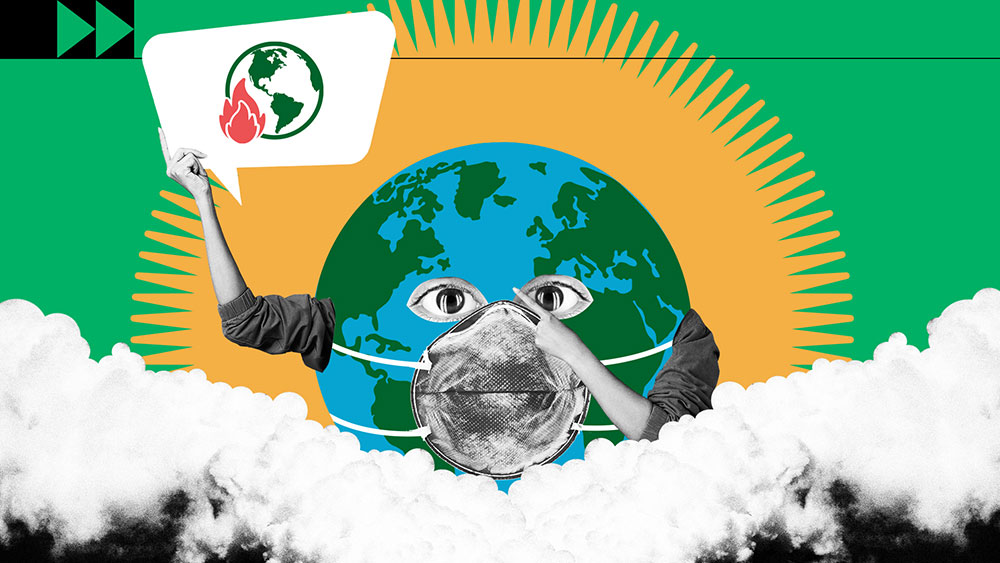It is scientifically proven that burning fossil fuels generates greenhouse gas emissions that act like a blanket wrapped around the Earth, trapping the sun’s heat and raising temperatures.
The main greenhouse gases that are causing climate change include carbon dioxide and methane. These come from using gasoline for driving a car or coal for heating a building, for example. Clearing land and cutting down forests can also release carbon dioxide. Agriculture, oil and gas operations are major sources of methane emissions. Energy, industry, transport, buildings, agriculture and land use are among the main sectors causing greenhouse gases.

source: UN/climate change
Humans are responsible for global warming.
Climate scientists have showed that humans are responsible for virtually all global heating over the last 200 years. Human activities like the ones mentioned above are causing greenhouse gases that are warming the world faster than at any time in at least the last two thousand years.
The average temperature of the Earth’s surface is now about 1.1°C warmer than it was in the late 1800s (before the industrial revolution) and warmer than at any time in the last 100,000 years. The last decade (2011-2020) was the warmest on record, and each of the last four decades has been warmer than any previous decade since 1850.
Many people think climate change mainly means warmer temperatures. But temperature rise is only the beginning of the story. Because the Earth is a system, where everything is connected, changes in one area can influence changes in all others.
The consequences of climate change now include, among others, intense droughts, water scarcity, severe fires, rising sea levels, flooding, melting polar ice, catastrophic storms and declining biodiversity.

People are experiencing climate change in diverse ways
According to the United Nations, Climate change can affect our health, ability to grow food, housing, safety and work. Some of us are already more vulnerable to climate impacts, such as people living in small island nations and other developing countries. Conditions like sea-level rise and saltwater intrusion have advanced to the point where whole communities have had to relocate, and protracted droughts are putting people at risk of famine. In the future, the number of people displaced by weather-related events is expected to rise.
Abnormal Surge in Temperatures in Sub- Saharan Africa
There has been an abnormal surge in temperatures in Africa recently and Ghana is no exception.
The temperatures keep rising day in and day out making it uncomfortable for people to carry out their daily chores/routines. The temperatures within the day can rise as high as 45 degrees celcious. This has forced those living within the high- and middle-income range to seek other alternatives such as purchasing air conditioners for installations in their bedrooms and living rooms whilst those below and in the poverty, range are left to face the full force of the unforgiving harshness of the weather.
At this current rate of abnormal temperature rise, one can only pray that the rains set in quickly to soothe away the heat so that life can return to normality.

